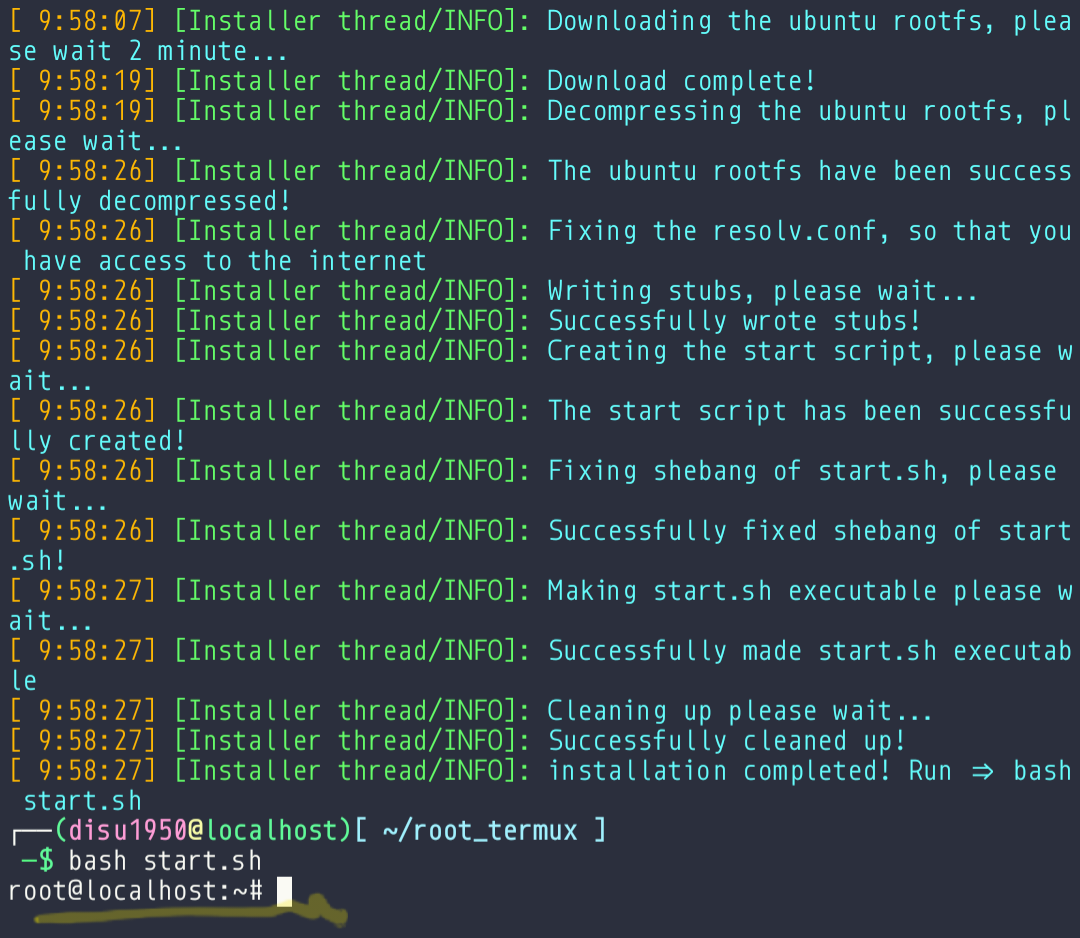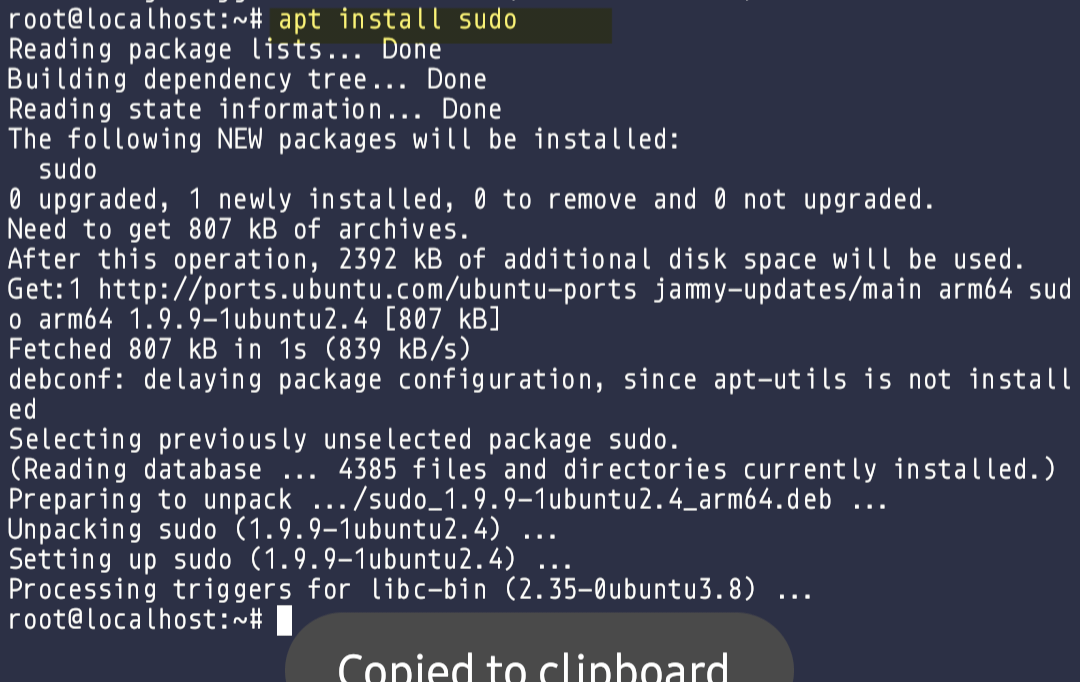260a106bcb61941062c65dd17b661076746ef22a
root_termux
Gives root shell on Termux while being able to run Termux commands as root for non-rooted deviced.
install Root in the Termux


Usage
Gives u root shell on Termux while being able to run Termux commands as root.
Run these commands in Termux:
# install git
pkg install git -y
# clone from github with git
git clone https://gitea.dmz.rs/disu1950/root_termux && cd root_termux && chmod +x *
# install packages
pkg install wget proot -y
then enter the following command and go through the installation process:
# run bash script `install.sh`
yes | bash install.sh
after installing and creating the executable file, run the root environment with the following command:
# run bash script `start.sh`
bash start.sh # or `./start.sh`
Note: after running Termux as root, you need to install all the packages from the beginning, and be sure to update the terminal with the following commands after installation so that you don't have any problems installing the packages:
apt update
apt upgrade
! After apt upgrade following packages will be upgraded:
apt base-files bash bsdutils coreutils dpkg gcc-12-base
libapt-pkg6.0 libblkid1 libc-bin libc6 libgcc-s1 libgnutls30
libgssapi-krb5-2 libk5crypto3 libkrb5-3 libkrb5support0 libmount1
libpam-modules libpam-modules-bin libpam-runtime libpam0g
libprocps8 libsmartcols1 libssl3 libstdc++6 libsystemd0 libudev1
libuuid1 login mount passwd perl-base procps tar util-linux
```
<br>
command to install **sudo** after installing Ubuntu:
```bash
apt install sudo
```
<br>
If evrythings goes smooth ur prompt should look lik3 this:
`root@localhost:~#`
Description
Gives root shell on Termux while being able to run Termux commands as root for non-rooted deviced.
https://gitea.dmz.rs/disu1950/root_termux/
Languages
Shell
100%